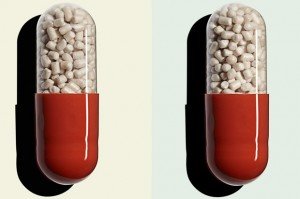Every year, millions of Canadians and Americans look to internet pharmacies for discounts on their prescription. When prescriptions are not covered by health care, or local costs become prohibitive, many patients have no choice but to seek out alternatives. Unfortunately, many of those presumably legitimate online options turn out to be anything but – and patients end up endangering their lives with subpar products, or in some cases illegal substances. In North America, the most commonly counterfeited drugs are those intended for the treatment of cancer and depression; therapies that undergo years of pharmaceutical quality assurance in order to garner consumer faith – a trust that is abused by counterfeiters, and results in potentially lethal consequences.
Canada’s takes aggressive action
According to RCMP Commissioner Bob Paulson, “counterfeit pharmaceuticals is one of the world’s fastest growing illicit industries.” 5 years ago, the Canadian government launched Project Pangea – a collaboration between Canada Border Services Agency (CBSA) and INTERPOL that inspects incoming pharmaceuticals from international sources. This year, it spanned 100 countries and resulted in 58 arrests worldwide and the seizure of 9,895,926 million potentially dangerous medicines worth over $41 million USD. Committed to increasing public awareness, Pangea recently held a press conference in Toronto to remind the public that buying counterfeit and unlicensed medicines online can be fatal, while increasing the risks of credit card fraud, identity theft and malware viruses.
The FDA busts fake Canadian online pharmacies
In the summer of 2013, a sting operation by the Food and Drug Administration busted more than 1000 illegal pharmacy websites that were all claiming to be based in Canada, selling cheap generic medication. Posing as customers, FDA agents determined that the businesses were situated in the US, and purported to offer a range of high-market brands. When they ordered the meds, the agents were never asked to present a prescription – an omission that industry professional and students in pharmaceutical courses know is an enormous oversight. And instead of the requested Actos and Celebrex, the agents ultimately received illegal narcotics in a package postmarked from India.
Big Pharma fights back
Pharma giant Eli Lilly has responded to the massive breach of pharmaceutical quality control posed by counterfeits by backing new track-and-trace technology. Track-and-trace was signed into law by president Obama in November and features a central, federal drug verification system, rather than relying on various state-implemented approaches. Drug companies like Eli Lilly will benefit from a new 3D tool that helps customs officials scan incoming packages and communicate with pharma producers to authenticate medicines. The software application has been up and running since December and the World Customs Organization (WCO) is urging all pharmaceutical firms to link their database to the system.




